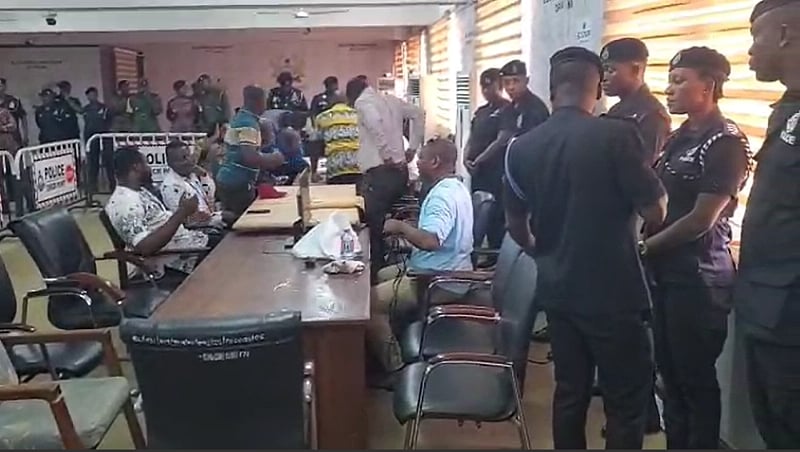The Ablekuma North constituency parliamentary election results collation process has been a subject of contention and delay, prompting intervention from the Electoral Commission (EC) and the High Court. Initially suspended on January 5th, 2024, the collation process was stalled due to discrepancies in the results from 20 polling stations, triggering a dispute that necessitated a thorough review of the associated pink sheets – the official documents recording vote tallies from each polling station. This delay became a focal point of legal proceedings, leading the High Court to mandate the EC to finalize the collation for Ablekuma North along with three other constituencies. While the EC successfully completed the process for the other three, declaring wins for the New Patriotic Party (NPP), the Ablekuma North results remained unresolved due to ongoing disagreements.
The heart of the dispute revolved around the authenticity and integrity of 21 pink sheets from a total of 62 outstanding results. The National Democratic Congress (NDC) raised concerns about scanned copies of these pink sheets submitted by the NPP, questioning their validity and thereby casting doubt on the accuracy of the overall results. Dr. Rashid Tanko Computer, the NDC’s Deputy Director of Elections and IT, instructed party representatives to withdraw from the collation process, denouncing it as illegitimate. This action further underscored the seriousness of the allegations and the depth of the disagreement between the two major political parties. The EC responded by temporarily halting the collation to address the issues raised by the NDC and to ensure the transparency and fairness of the process.
In an effort to resolve the impasse and restore confidence in the electoral process, the EC undertook a series of actions. The Commission announced its intention to resume the collation within 24 hours, following a comprehensive review of the disputed pink sheets. As part of this verification process, the EC summoned presiding officers from the 20 affected polling stations to present their original copies of the pink sheets. This measure aimed to reconcile any discrepancies between the original documents and the scanned copies submitted by the NPP, thereby establishing the true and accurate vote count for each polling station. By directly involving the presiding officers, the EC sought to ensure an impartial and authoritative verification of the results.
The EC’s decision to suspend and subsequently resume the collation highlights the importance of transparency and due diligence in electoral processes. By addressing the concerns raised by the NDC and initiating a thorough review of the disputed documents, the EC demonstrated its commitment to ensuring that the final results accurately reflect the will of the voters. The involvement of the High Court further emphasizes the significance of legal oversight in electoral disputes and the need for a robust legal framework to resolve such issues.
The delay in the Ablekuma North constituency election results collation underscores the challenges that can arise in electoral processes, even in established democracies. Disputes over the validity of results, particularly when they involve allegations of irregularities or discrepancies, can undermine public trust in the integrity of the election. The swift action taken by the EC to address these concerns and implement measures to verify the results demonstrates the importance of responsive and transparent electoral management. The case also highlights the critical role of political parties and their representatives in ensuring accountability and upholding the principles of democratic elections.
The outcome of the Ablekuma North collation process will have significant implications not only for the constituency itself but also for the broader political landscape. The close scrutiny given to the process underscores the high stakes involved in electoral contests and the importance of ensuring that the results are credible and accepted by all stakeholders. The EC’s commitment to resolving the issue transparently and efficiently demonstrates its dedication to upholding the democratic principles of fairness, accuracy, and accountability in the electoral process. The final results, once declared, will determine the constituency’s representative in Parliament and contribute to the overall composition of the legislative body. The careful handling of this dispute serves as a crucial example of the measures necessary to maintain public trust and confidence in the electoral system.














